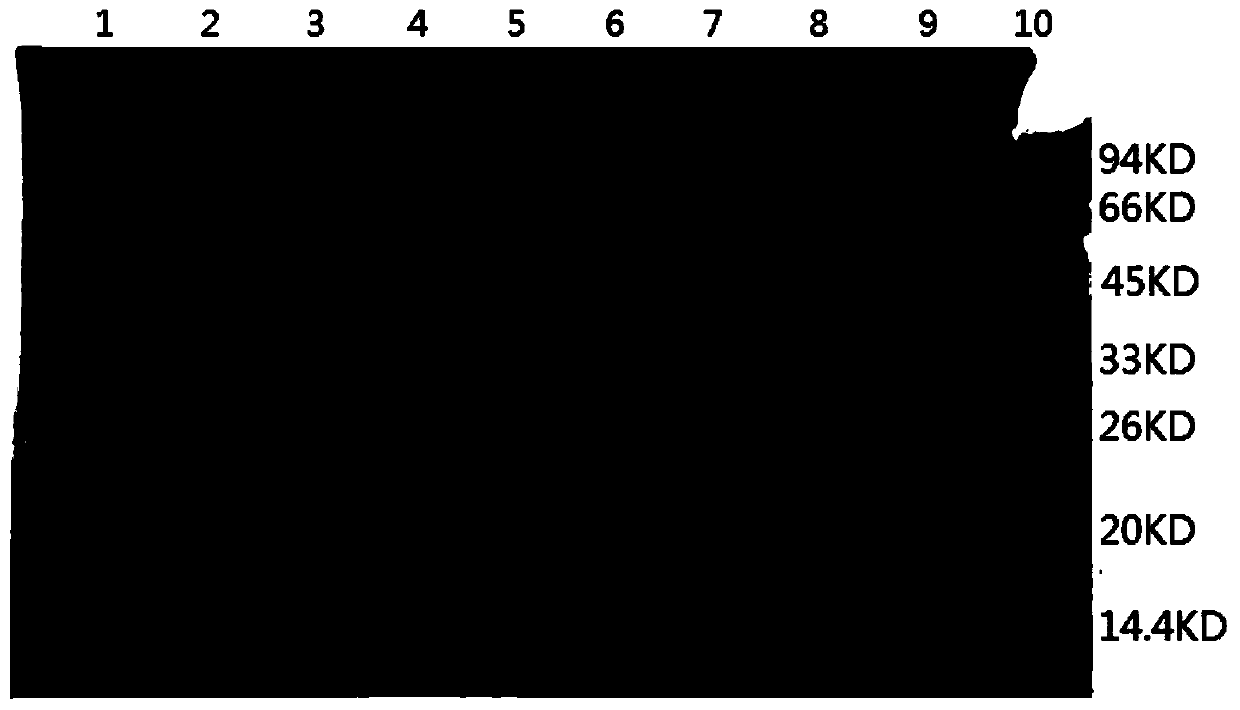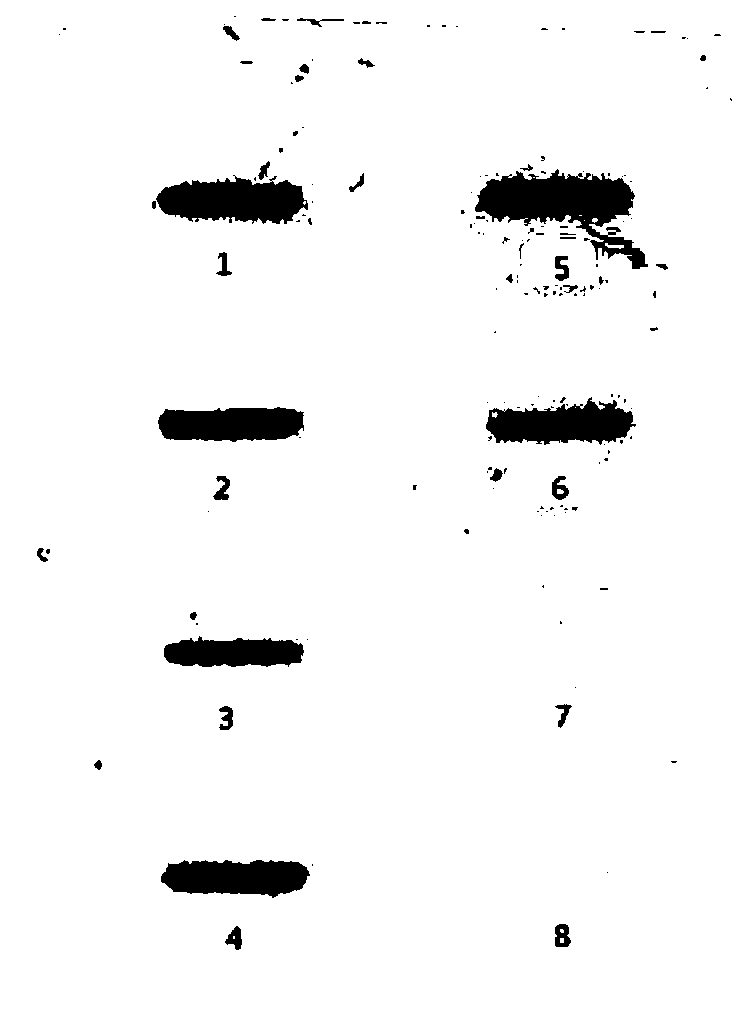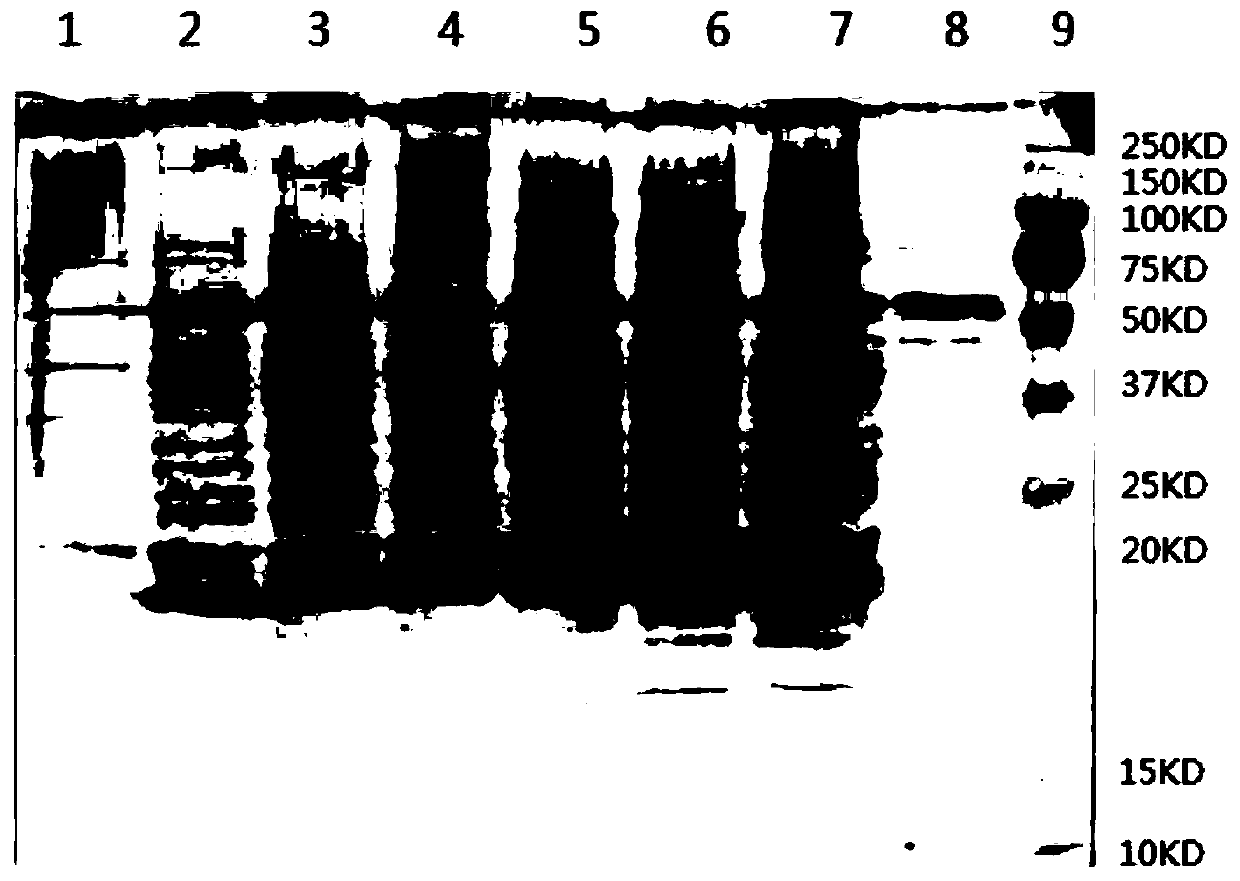Method for producing HPV31 L1 protein by using hansenula polymorpha expression system
A Hansenula protein technology, applied in the field of Hansenula expression system to produce HPV31L1 protein, can solve the problems that the purity of exogenous protein is not disclosed, and the protein expression level is not provided.
- Summary
- Abstract
- Description
- Claims
- Application Information
AI Technical Summary
Problems solved by technology
Method used
Image
Examples
Embodiment 1
[0054] Example 1: Analysis of HPV31 L1 Consensus Amino Acid Sequence
[0055] The full-length HPV31 L1 protein consists of 504 amino acids. After searching GenBank, use the AlignX function of the Vector NTI software to perform amino acid sequence alignment and analysis, and obtain the most representative HPV31 L1 consensus amino acid sequence (consensus amino acid sequence, that is, in HPV31 Each amino acid position of L1 adopts the sequence of the amino acid residue with the highest frequency), and its sequence is shown in SEQ ID NO:1.
Embodiment 2
[0056] Example 2: Optimal Design and Artificial Synthesis of HPV31 L1 Encoding Gene
[0057] In order to efficiently express the HPV31 L1 protein using Hansenula, the inventors optimized the codons of the nucleotide sequence for Hansenula according to the amino acid sequence shown in SEQ ID NO:1. The optimization principles include: a) select codons with the highest or higher frequency of use according to the Hansenula genetic code usage frequency table; b) avoid negative regulatory elements that have potential effects on gene transcription or protein translation, such as PolyAT regions, PolyGC regions, Silencer region and internal splicing sites, etc.; c) Comprehensive analysis of the mRNA secondary structure including the 5' end UTR, HPV31L1 coding region and 3' end UTR, to avoid the formation of complex RNA secondary structures, Reduce the free energy of the secondary structure of the mRNA; d) Use the 5'UTR region that is completely consistent with the natural sequence down...
Embodiment 3
[0059] Example 3: Generation of expression constructs carrying the HPV31 L1 nucleotide sequence
[0060] The Hansenula expression vector used in the present invention is the Hansenula expression vector pRMHP2.1 (SEQ ID NO: 9) described in the Chinese patent application with application number 201210021524.X.
[0061] (1) PCR amplification of MOX promoter and MOX terminator
[0062] Using the mixed genomic DNA of Hansenula strains ATCC26012 and ATCC34438 as a template, the following primers were used to amplify the MOX promoter with a size of 1518bp, and a NotI restriction site was introduced upstream;
[0063] MOX promoter upstream primer: 5'-AAGGAAAAAAGCGGCCGCAACGATCTCCTCGAGCTGCTCGC-3' (SEQ ID NO: 3)
[0064] MOX promoter downstream primer: 5'-TTTGTTTTTGTACTTTAGATTGATGTC-3' (SEQ ID NO: 4)
[0065] Using the mixed genomic DNA of Hansenula strains ATCC26012 and ATCC34438 as a template, the following primers were used to amplify the MOX terminator with a size of 311bp, and at ...
PUM
 Login to View More
Login to View More Abstract
Description
Claims
Application Information
 Login to View More
Login to View More - R&D
- Intellectual Property
- Life Sciences
- Materials
- Tech Scout
- Unparalleled Data Quality
- Higher Quality Content
- 60% Fewer Hallucinations
Browse by: Latest US Patents, China's latest patents, Technical Efficacy Thesaurus, Application Domain, Technology Topic, Popular Technical Reports.
© 2025 PatSnap. All rights reserved.Legal|Privacy policy|Modern Slavery Act Transparency Statement|Sitemap|About US| Contact US: help@patsnap.com



